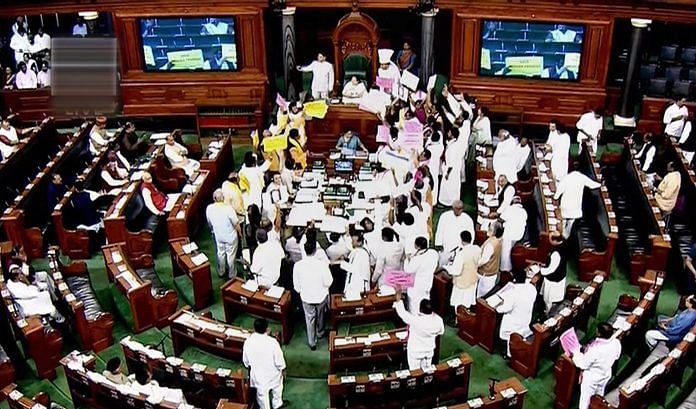It will ensure damages to an affected party in case of breach of contract, to facilitate ease of doing business.
New Delhi: Amid the opposition’s ruckus in Parliament, the Modi government Thursday passed a bill by voice votes, which could pave the way for a smooth resolution of infrastructure project-related disputes in the country.
The Specific Relief (Amendment) Bill proposes to grant a party the right to seek damages from the other side in case of a breach of a business contract and to reduce discretion of courts in such matters, especially infrastructure project-related disputes.
The rationale behind the amendment to the five-decade-old law was a need for a stronger enforcement of contract system, developing confidence in investors, which could ensure rapid economic growth, expansion of infrastructure and facilitate ease of doing business in India.
Why the amendment?
It was felt that with increase in commercial activities in India, including FDI, public-private partnerships and public utilities infrastructure development, the Special Relief Act of 1963 was not fully equipped to deal with rapid economic growth that the country is seeing.
Moreover, there was general feeling that too much was left upon the courts to decide on the fate of the infrastructure projects. Hence, the bill has sought to tweak certain provisions so that it is in sync with the expansion activities happening in the country.
The amendments made to the act
Awarding damages was prevalent in cases where contracts were breached; however, this bill proposes to change the old system by asking the party who has violated the contract to adhere to the specific performance as a general rule and the ruling to award damages will only be an exception from now on.
Refusal to grant specific performance by the court now can only be on the grounds specified in some sections of the Act.
The bill seeks to prevent courts from grating injunctions in cases related to infrastructure projects where the injunction awarded can result in delay of the completion of the project. Infrastructure projects can be cateogarised as transport, energy, water and sanitation, communication as well as social and commercial infrastructure such as affordable housing.
Moreover, special courts will be set up for contracts relating to infrastructure and for faster delivery of such cases within a year, failing which the period of disposal of such cases can be extended up to another six months.
In case there has been a failure to deliver on the contract, then the party whose contract has been breached can get the project done by a third party (substituted performance) or by his/her own agency and recover expenses, including compensation, from the defaulter. However, the party whose contract was breached has to give a 30-day notice to the party who breached the contract. But, the third party which got substituted performance shall not be entitled to specific performance.
The new bill also seeks to insert a new section (14 A) by which the court can, if it’s necessary, contemplate on getting an expert opinion on specific issues relating to the case of broken contracts.



